
L’OUGANDA EN UN COUP D’ŒILT
1. POINT DE REPÈRE:
L’Ouganda est un pays enclavé situé dans la région de l’Afrique de l’Est. Il est bordé par le Soudan du Sud au nord, le Kenya à l’est, la Tanzanie au sud, le Rwanda au sud-ouest et la République démocratique du Congo à l’ouest.
1.1. Population:
La population totale est de 49,2 millions de personnes, composée de 24 millions d’hommes et de 25,2 millions de femmes. L’Ouganda est principalement rural avec une population urbaine de 28,6 %. Il a la deuxième population la plus jeune au monde avec un taux de croissance démographique de 3 % par an.
1.2. Climat:
L’Ouganda a un climat tropical chaud. La saison sèche dans le nord-est de décembre à février et la saison des pluies est d’avril à octobre. Le centre-sud a deux saisons des pluies (de la fin mars à mai et de la fin septembre à décembre). Les zones les plus sèches sont le Sud-Ouest et le Nord-Est qui sont plus sujets à la sécheresse. Les zones les plus humides sont le centre-nord et certaines rives du lac Victoria. L’Ouganda connaît le phénomène de l’oscillation australe El Niño (ENSO), un phénomène climatique mondial important qui découle des variations des vents et de la température de la surface de la mer au-dessus de l’océan Pacifique tropical et peut conduire à des événements extrêmes tels que les inondations et la sécheresse. Le pays est également vulnérable à d’autres catastrophes naturelles comme les tempêtes de grête, les tempêtes de vent, les glissements de terrain, les tremblements de terre et la foudre.
2. DATES PERTINENTES DANS L’HISTOIRE
- L’Ouganda a obtenu son indépendance du Royaume-Uni le 9 octobre 1962.
- Le 2 mars 1966, le Premier ministre Milton Obote a suspendu la constitution et a violemment destué le président Edward Mutesa.
- Idi Amin a pris le pouvoir le 25 janvier 1971 par le premier coup d’État militaire, a annexé le territoire tanzanien en 1979 et a été renversé le 11 avril 1979.
- La guerre de Bush en Ouganda a eu lieu de 1981 à 1986 entre la résistance du Seigneur.
Fêtes Nationales
| 26 Janvier | Journée de la liberation
Également connue sous le nom de Journée de libération du Mouvement national de résistance (NRM). Le jour où Museveni a renversé le régime oppressif d’Obote. |
| 16 Février | Jour de l’archevêque Janan Lawum
Créé en 2015 pour commémorer la vie et les contributions de l’ancien archevêque de l’Église anglicane d’Ouganda Janani Luwum. |
| 3 Juin |
Jour de Matryr Célébration des chrétiens persécutés pour leurs croyances par Kabaka Danieri Basammula-Ekkere Mwanga Mukasa II (la 31e Kabaka de Buganda) entre Novembre 1885 et Janvier 1887. |
| 9 Juin |
Journée nationale des héros Commémore les personnes décédées pendant la guerre de Bush en Ouganda. |
3. INDUSTRIES ET SECTEURS CLÉS
3.1. Agriculture:
Emploie 68% de la main-d’œuvre. Les 10 principaux produits sont les plantains, le maïs, la canne à sucre, le manioc, le lait, les haricots, les patates douces, le riz, les légumes et le café.
3.2. Fabrication:
Représente environ 21% du PIB. L’industrie est dominée par les étrangers et couvre la transformation du sucre, le brassage, le tabac, les textiles de coton, le ciment, la production d’acier.
3.3. Tourisme:
Parc national des chutes de la Reine Elizabeth et Murchison, parcs nationaux du mont Ruwenzori et du Nil, du lac Victoria et du lac Albert, de Bwindi et de Mgahinga.
3.4. Huile et Exploitation Minière:
L’Ouganda possède de riches réserves minérales: cuivre, tungstène, étain, cobalt, columbite-tantalite, or, phosphate, minerai de fer et calcaire qui sont extraits. Le pétrole a été découvert dans le pays en 2006.
3.5. Services Financiers:
L’écosystème comprend les banques, les compagnies d’assurance, les sociétés de microfinance et les sociétés d’investissement. L’Ouganda compte 2 bourses – Uganda Securities Exchange et Altx East Africa Limited créées en 1997 et 2013 respectivement.
3.6. Transport:
L’Ouganda dispose actuellement d’un aéroport international – l’aéroport international d’Entebbe, un deuxième aéroport (Kabalega également appelé aéroport international de Hoima) est en construction. L’Ouganda dispose également de plusieurs pistes d’atterrissage et aérodromes nationaux.
3.7. Communication:
Les services comprennent les journaux, la radio, la télévision, le courrier et les services Internet.
4. IMPORTATIONS MAJEURES
- Équipement lourd
- Fournitures médicales/Pharmaceutiques
- Véhicules
- Engrais
- Huile et graisses des legumes
- Plastiques
5. PRINCIPALES EXPORTATIONS
- Or
- Café
- Préson et produits à base de poisson
- Sucre brut
- Cacaoo
- Produit pétrolier
- Fer et acier
- Thé
6. PRINCIPALES OPPORTUNITÉS D’EXPORTATION
Marché agricole dynamique: l’Ouganda a des terres fertiles abondantes, des conditions météorologiques favorables et une production bimodale dans la majeure partie du pays.
Industrie pétrolière émergente: l’Ouganda compte environ 1,4 milliard de barils de pétrole récupérable, les premières exportations de pétrole étant attendues en 2025.
Croissance de l’économie de marché libre: Le FMI prévoit une croissance moyenne de 6 % au cours des trois prochains exercices.
Marché de consommation substantiel et en croissance rapide: Le taux de croissance annuel de la population de l’Ouganda, d’environ 3 %, est parmi les plus élevés au monde.
L’adhésion de l’Ouganda aux zones commerciales internationales et régionales offre un accès accru au marché et améliore les possibilités d’exportation. Un exemple est celui des exportations hors taxes vers les plus de 200 millions de personnes sur le marché de la Communauté de l’Afrique de l’Est (EAC).
7. PARTENAIRES ÉCONOMIQUES CLÉS
7.1. Importations
- Chine (1,3 Million De Dollars)
- Inde (959 millions de dollars)
- Kenya (773 millions de dollars)
- Tanzanie (744 millions de dollars)
7.2. Exportations
- Émirats arabes unis 1,8 Million De Dollars
- Kenya (466 millions de dollars)
- Soudan Du Sud (357 Millions De Dollars)
- RDC (357 millions de dollars)
8. PRINCIPAUX RÈGLEMENTS COMMERCIAUX
| La loi 2019 sur le code de l’investissement (Nouveau Code) | Prévoit des règlements pour les investissements locaux et étrangers en Ouganda. |
| Uganda Revenue Authority Act 1991 | Favorise l’évaluation, la perception et l’application des impôts. |
| La loi de 2012 sur les entreprises | Réglemente la formation, la gestion et la dissolution des entités commerciales. |
| Loi minière de 2003 | Régit l’exploration, l’extraction et le traitement des ressources minérales. |
| Loi de 2004 sur la concurrence | Favorise la concurrence loyale et freine les pratiques anticoncurrentielles. |
| Loi de 2015 sur le partenariat public-privé | Fournit le cadre juridique pour la mise en œuvre des partenariats public-privé (PPP) en Ouganda et facilite l’investissement dans les infrastructures publiques. |
| Loi de 2013 sur la lutte contre le blanchiment d’argent | Prévoit l’interdiction et la prévention du blanchiment d’argent. |
| Uganda National Bureau of Standards (Amendment) Act, 2013 | Établit des normes pour les produits et services afin d’assurer la qualité et la sécurité. |
| Trade Licensing Act 1969 | Réglemente le commerce et les autres questions liées au commerce. |
9. PROCESSUS DE CRÉATION D’ENTREPRISE
9.1. Formes d’entités commerciales:
Les structures juridiques pour faire des affaires en Ouganda comprennent: les entreprises individuelles, les sociétés de personnes, les sociétés à responsabilité limitée, les sociétés publiques, les sociétés étrangères, entre autres.
9.2. Processus d’enregistrement de la société à responsabilité limitée
- Demander au registraire des sociétés pour une recherche de nom;
- Réservation de nom auprès du Bureau des services d’enregistrement de l’Ouganda: le nom est valide pendant 30 jours;
- La loi de 2012 sur les sociétés prévoit des articles modèles, qui peuvent être adoptés par une entreprise lors de l’enregistrement. Vous pouvez également rédiger et adopter votre protocole de service et votre statut d’association;
- MEMART doit être exécuté par au moins 1 actionnaire;
- Payer le droit de timbre de 0,5 % et des frais d’inscription prevus à 1 % du capital social nominal de la société;
- Tous les documents constitutifs sont ensuite enregistrés par le registraire et l’entité reçoit un numéro de société;
- Les documents constitutifs comprennent: une forme des administrateurs et des actionnaires de la société, un état du capital nominal et un avis d’adresse de la société;
- L’enregistrement peut prendre entre trois et cinq jours à compter de la date de soumission des documents au registre des sociétés.
- Par la suite, inscrivez-vous auprès de l’autorité fiscale ougandaise pour obtenir le numéro d’identification fiscale et la licence de négociation.
9.3. Enregistrement des sociétés étrangères
- Il s’agit de sociétés constituées en dehors de l’Ouganda mais enregistrées en Ouganda.
- Déposer un mémorandum et des statuts ou tout autre document certifié par le registraire des sociétés du pays d’origine;
- Déposer une copie certifiée conforme du certificat de constitution;
- Formulaires de la société A19, A20 (Particules particulières des administrateurs et des secrétaires), A21 (Document de constitution de la société amalgamée/Document d’avis de changement de constitution) et A22 (Certificat d’administrateurs);
- Payez les frais d’inscription estimés et soumettez la documentation pour traitement au registre des entreprises.
10. TAXES
| Impôt sur le revenu | Conformément à la loi de 1997 sur l’impôt sur le revenu, il s’agit d’un impôt sur toute personne, à la fois naturelle et artificielle, qui a un revenu imposable (dérivé de l’Ouganda) au cours de chaque année d’imposition. Le taux d’imposition pour les sociétés résidentes et les succursales de sociétés étrangères est de 30%. |
| Retenue à la source | Appliquée aux paiements de dividendes et d’intérêts conformément à la Loi de l’impôt sur le revenu de 1997. Le taux WHT applicable aux revenus d’intérêt (à l’exclusion des revenus d’intérêt sur les titres d’État) à une personne résidente est de 18%, tandis que pour les non-résidents, il est à un taux de 15%. à l’exclusion des intérêts sur les titres d’État. |
| Taxe sur la valeur ajoutée | Perçue, conformément aux lois de 1996 sur la taxe sur la valeur ajoutée, sur les biens et services fournis en Ouganda, ainsi que sur les importations. Le taux de TVA standard est de 18%. |
| Droit de douane | perçu sur les marchandises importées dans la Communauté de l’Afrique de l’Est (EAC) conformément aux dispositions de la Loi sur la gestion des douanes de la Communauté de l’Afrique de l’Est (EACCMA). Le taux de droit de douane applicable est prescrit dans le tarif douanier extérieur du CAE, 2017, communément appelé code CET. En général, un taux de droit à l’importation de 25% s’applique aux importations en provenance de pays en dehors du CCE. |
| Impôt sur les gains en capital | Est perçu au taux de 30 % sur les gains réalisés lors de la vente d’actifs situés en Ouganda, conformément à la loi de 1997 sur l’impôt sur le revenu. |
| Droits de timbre | Sont facturés à 1 % de la valeur commerciale totale de la transaction, conformément à la loi de 2014 sur les droits de timbre. |
| Droits d’accise | Administré conformément à la loi de 2014 sur les droits d’accise calculé conformément aux taux indiqués à l’annexe 2 de la loi. Il est payable sur les marchandises fabriquées dans le pays. |
11. INCITATIONS ET CONCESSIONS
11.1. Incitations générales:
- Exonération de 100 % sur les dépenses de formation pour l’agro-transformation, l’ajout de valeur minière et le développement des parcs industriels.
- Exonération de 100 % sur les dépenses de recherche scientifique.
11.2. Agro-traitement:
- Exonération de 100 % de l’impôt sur le revenu de l’agro-transformation.
- Congé fiscal pendant les 10 premières années sur l’exportation de biens de consommation finis et d’é
- Exemption sur la zone de transformation d’exportation sur les matières premières et les marchandises intermédiaires importées, les machines et l’équipement, les pièces de rechange à usage exclusif dans la zone franche.
11.3. Ajout de valeur minière:
- 100 % de recouvrement des coûts sur l’exploration, le développement et la production.
- L’allégement indéfini en espèces sur la TVA (TVA réputée) sur les fournitures de l’entrepreneur et l’exonération de TVA sur les autres intrants miniers non couverts par l’allégement réputé/en espè
- Les machines et les pièces de rechange à usage direct et exclusif dans l’exploitation minière sont exonérées de tous les droits à l’importation en vertu de la cinquième annexe de la Loi sur la gestion des douanes de la Communauté de l’Afrique de l’Est.
11.4. Développement des parcs industriels:
- 10 ans d’exonération fiscale pour les investisseurs étrangers et nationaux pour la location ou la location dans un parc industriel/zone franche avec un capital d’investissement minimum de 50 millions USD ou 10 millions USD respectivement.
- 10 ans d’exonération fiscale sur la TVA pour tout promoteur du parc industriel sur les bases suivantes (Pas de TVA sur tout paiement pour les études de faisabilité, les services de conception et de construction ; l’équipement et les machines de terrassement ; les matériaux de construction).
- Un amortissement fiscal accéléré unique sur la base de coût de la propriété au taux de 50 % est accordé aux personnes qui investissent dans des installations et des machines en dehors des frontières de Kampala ; tandis que pour les bâtiments industriels, 20 % sont accordés aux personnes qui développent de nouveaux bâtiments industriels pour la première fois.
- Aucune taxe d’accise n’est prélevée sur les matériaux de construction pour les développements dans un parc industriel.
- L’équipement est importé hors taxes.
11.5. Conditions d’accès aux incitations
- L’entité ou la personne doit faire des affaires dans l’industrie à laquelle l’incitation s’applique.
- Doit avoir obtenu une licence d’investissement et un certificat de l’Autorité d’investissement ougandaise.
- Un investisseur étranger doit déposer une somme de 100 USD ou son équivalent dans les shillings ougandais comme condition préalable à la
12. INDICATEURS DE FACILITÉ DE FAIRE DES AFFAIRES
12.1. Classement
- Le rapport 2020 sur la facilité de faire des affaires de la Banque mondiale a classé l’Ouganda au 116e rang parmi les 190 économies en termes de facilité de faire des affaires.
- L’Ouganda s’est classée 12e en termes de facilité de faire des affaires en Afrique, avec un coût moyen de démarrage et de gestion d’une petite et moyenne entreprise évalué à 163 USD.
12.2. Taxes:
La taxe sur l’argent mobile et la taxe sur les médias sociaux qui imposent une taxe de 0,5 % sur les transactions d’argent mobile et UGX 200 par jour sur les services Over The Top (OTT) respectivement, ont grandement eu un impact sur la facilité de faire des affaires.
12.3. Création d’entreprise:
Les investisseurs nationaux et étrangers sont tenus d’avoir un capital d’investissement minimum de 50 000 USD et 1000 000 USD respectivement, pour se qualifier pour l’enregistrement et obtenir une licence d’investissement de l’Autorité d’investissement de l’Ouganda.
Processus bureaucratiques lourds pour les investisseurs étrangers.
12.4. Corruption:
L’Ouganda est la 141 nation la moins corrompue sur 180 pays, selon l’indice de perception de la corruption de 2023 rapporté par Transparency International.
13. PÉNÉTRATION INTERNET/ADOPTION NUMÉRIQUE
- Au début de 2024, il y avait 13,30 millions d’internautes avec une pénétration totale d’Internet à 27%.
- 33,34 millions de connexions mobiles cellulaires étaient actives en Ouganda au début de 2024 (l’équivalent de 67,7 % de la population totale).
- En janvier 2024, il y avait 2,60 millions d’identités actives d’utilisateurs de médias sociaux.
- La croissance de la pénétration d’Internet est attribuée à l’expansion des réseaux mobiles à large bande, à l’abordabilité des téléphones intelligents, à l’amélioration de la prestation de services publics numérique, à l’essor d’une population technophile et à l’augmentation du commerce é
13.1. Le gouvernement ougandais a lancé plusieurs programmes pour améliorer la pénétration d’Internet. Les programmes comprennent:
a. Le projet d’accélération numérique-GovNet (UDAP-GovNet) qui vise à élargir l’accès à Internet haut débit et abordable, et à renforcer l’inclusion numérique.
b. La feuille de route pour la transformation numérique de l’Ouganda lancée le 17 août 2023 par le ministère des TIC et de l’Orientation nationale, une stratégie globale qui façonnera le paysage technologique du pays.
c. L’Autorité nationale des technologies de l’information de l’Ouganda (NITU-U) met l’accent sur la transformation des services gouvernementaux en déployant plusieurs projets d’administration en ligne qui couvrent : les visas électroniques, le système de déclaration en ligne IGG, les marchés publics électroniques, la communication numérique avec les citoyens.
d. Le développement du marché numérique unique (un écosystème numérique intégré qui s’étend au-delà des frontières nationales, facilitant les interactions et les transactions numériques transparentes) permet aux entreprises ougandaises d’accéder à 200 millions de consommateurs supplémentaires et d’accroître les choix pour la transformation numérique et l’inclusion des ougandais.
14. SOCIÉTÉS MONDIALES EN OUGANDA : ÉTUDES DE CAS
On estime que Total energies, une société française et la société chinoise China Offshore Oil Corporation (CNOOC) investissent environ 10 milliards de dollars dans le financement de la préproduction. Les projets d’infrastructure dans le secteur pétrolier comprennent des installations centrales de traitement, des pipelines de produits raffinés, un pipeline d’exportation de 3,5 milliards de dollars et la raffinerie de pétrole de 4,5 milliards de dollars.
Total Eren (une filiale de Total Energies) a conçu et commandé la centrale électrique de Soroti, la plus grande du genre en Afrique de l’Est. Il est connecté au réseau électrique ougandais.
Agilis Partners, une initiative d’un groupe d’investisseurs américains (composé d’Asili Farms et de Joseph Initiative Ltd) a investi dans des opérations agricoles commerciales à grande échelle axées sur le maïs, le soja, le tournesol et d’autres céréales. Agilis emploie la communauté locale et compte actuellement environ 675 employés, dont un nombre important de femmes.
À PROPOS DES PARTENAIRES DE DEALHQ
DealHQ Partners est une société panafricaine de conseil en transactions, dont le siège social est à Lagos, au Nigeria, mais avec une empreinte de service dans toute l’Afrique. Notre mission est de permettre aux entreprises dans toute la région en conduisant une Afrique connectée grâce à la pensée sans frontières, à l’exécution rigoureuse et aux solutions simplifiées.
Nous changeons le visage des services juridiques avec notre offre combinée de conseil juridique, combinée au conseil en gestion et au soutien mondial de conciergerie – ce qui nous permet d’apporter le meilleur de l’Afrique au monde et de connecter le monde à l’Afrique.
Sans doute l’une des entreprises à la croissance la plus rapide en Afrique, notre équipe est jeune, dynamique et innovante, ce qui fait de nous le faire pour des conseils d’accords innovants sur mesure en Afrique.




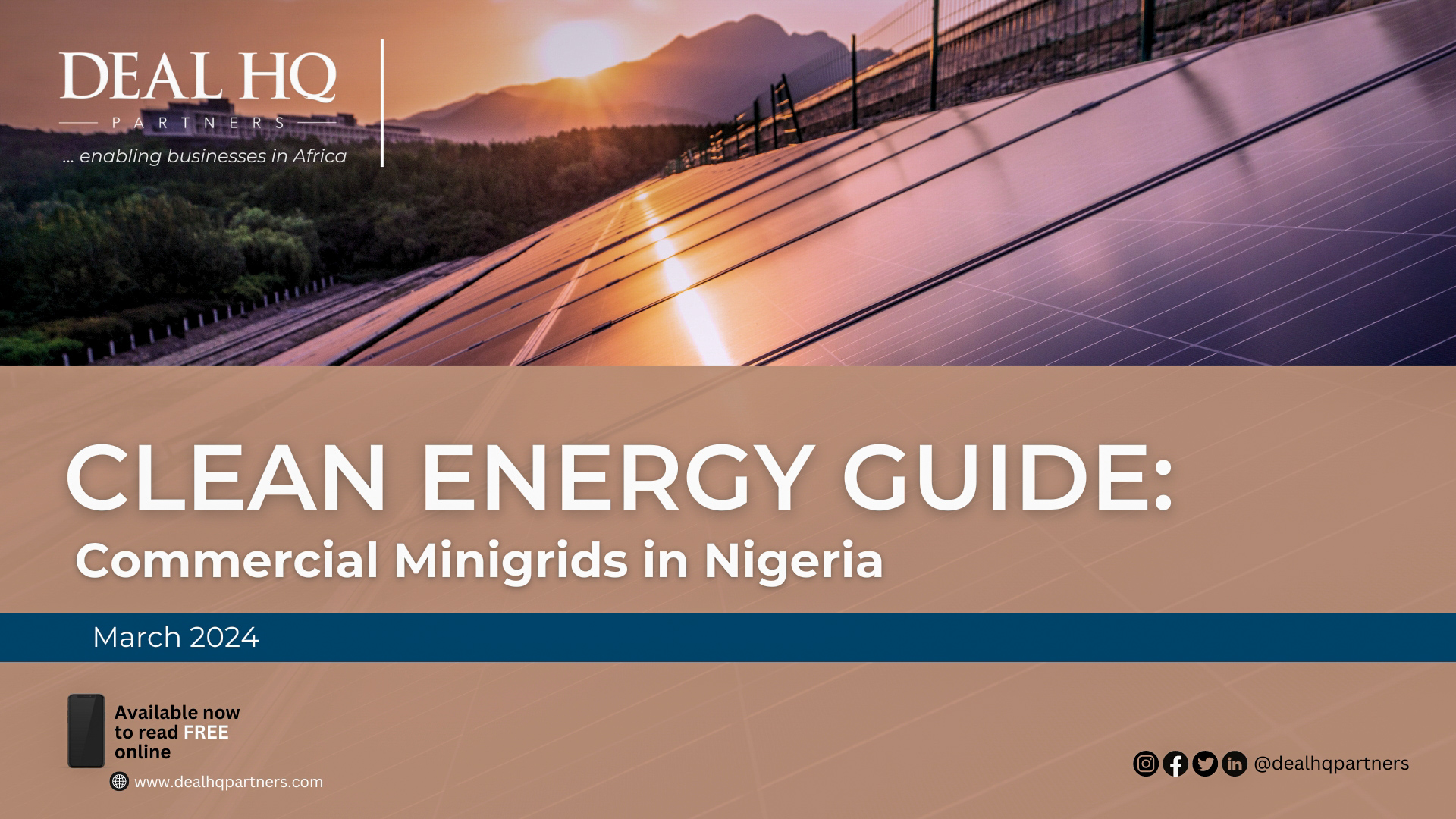
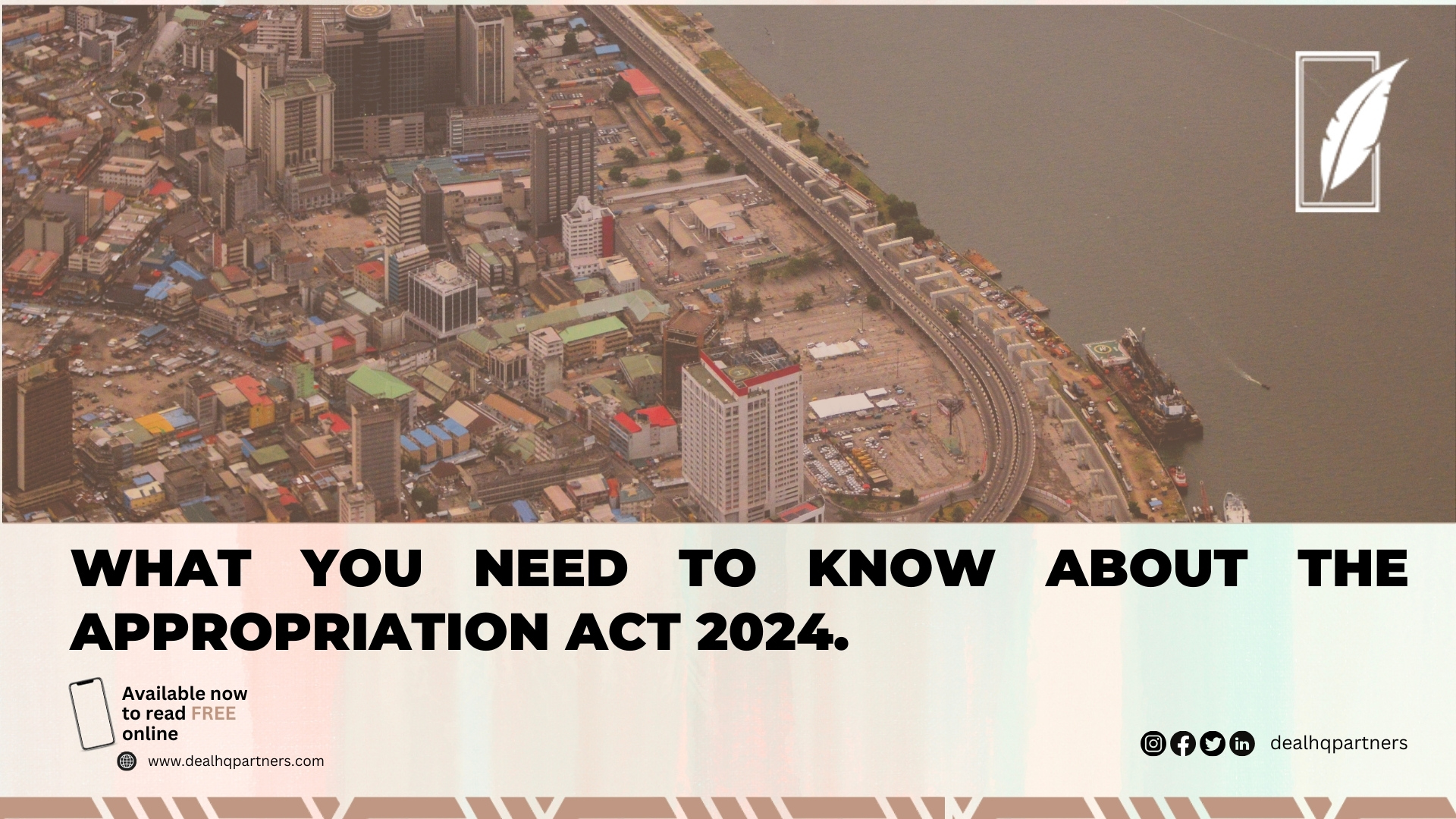
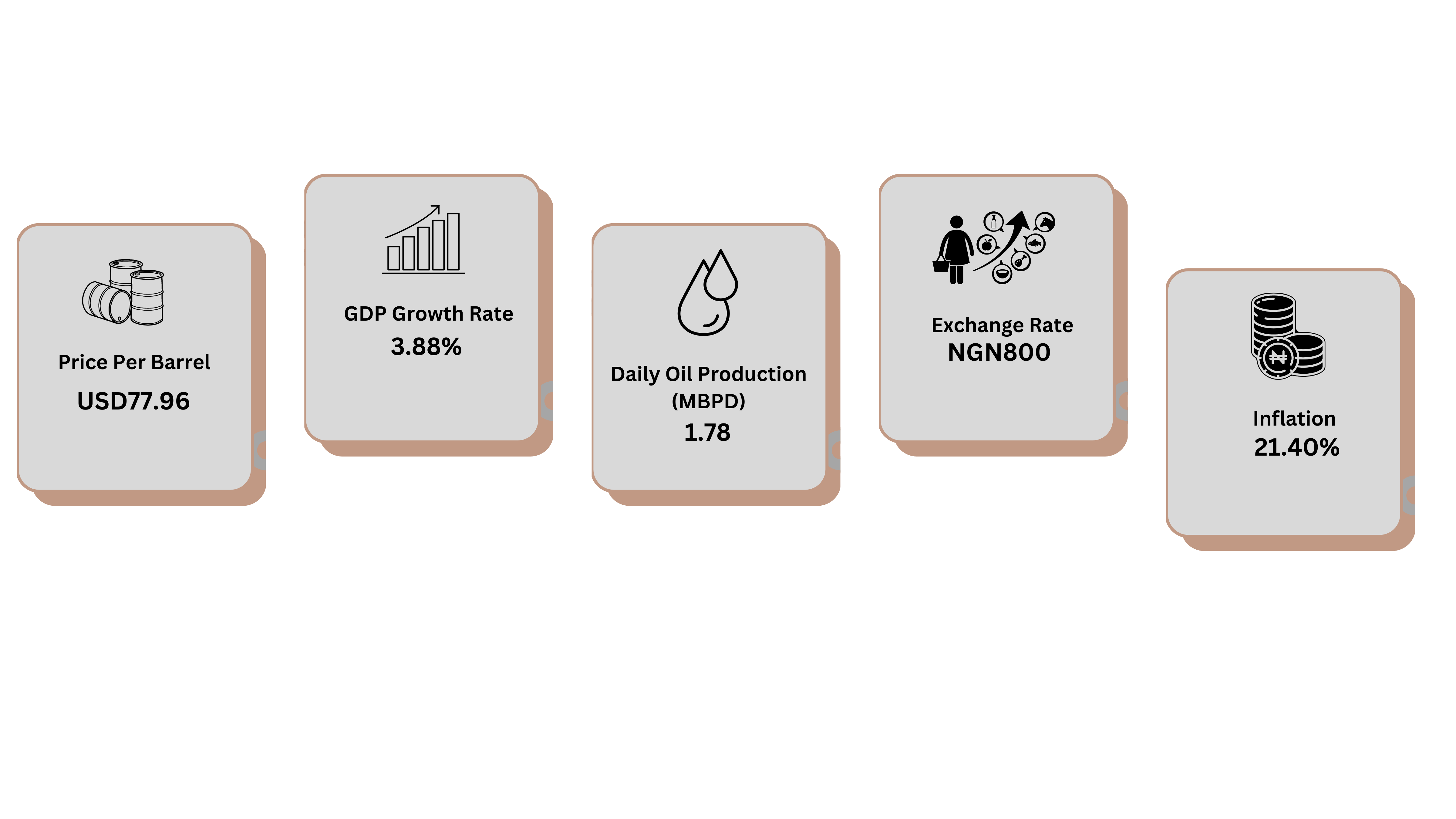
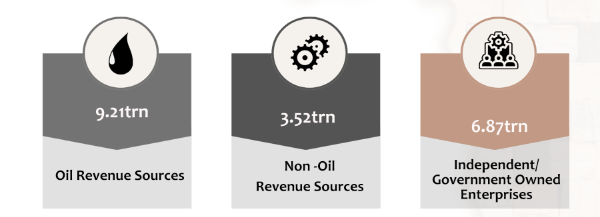
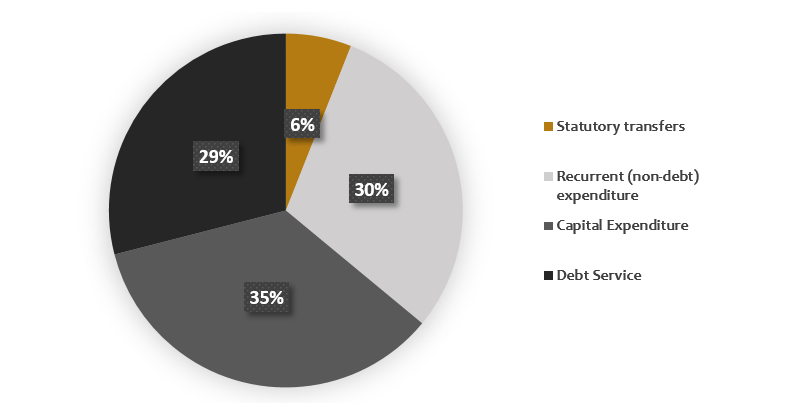
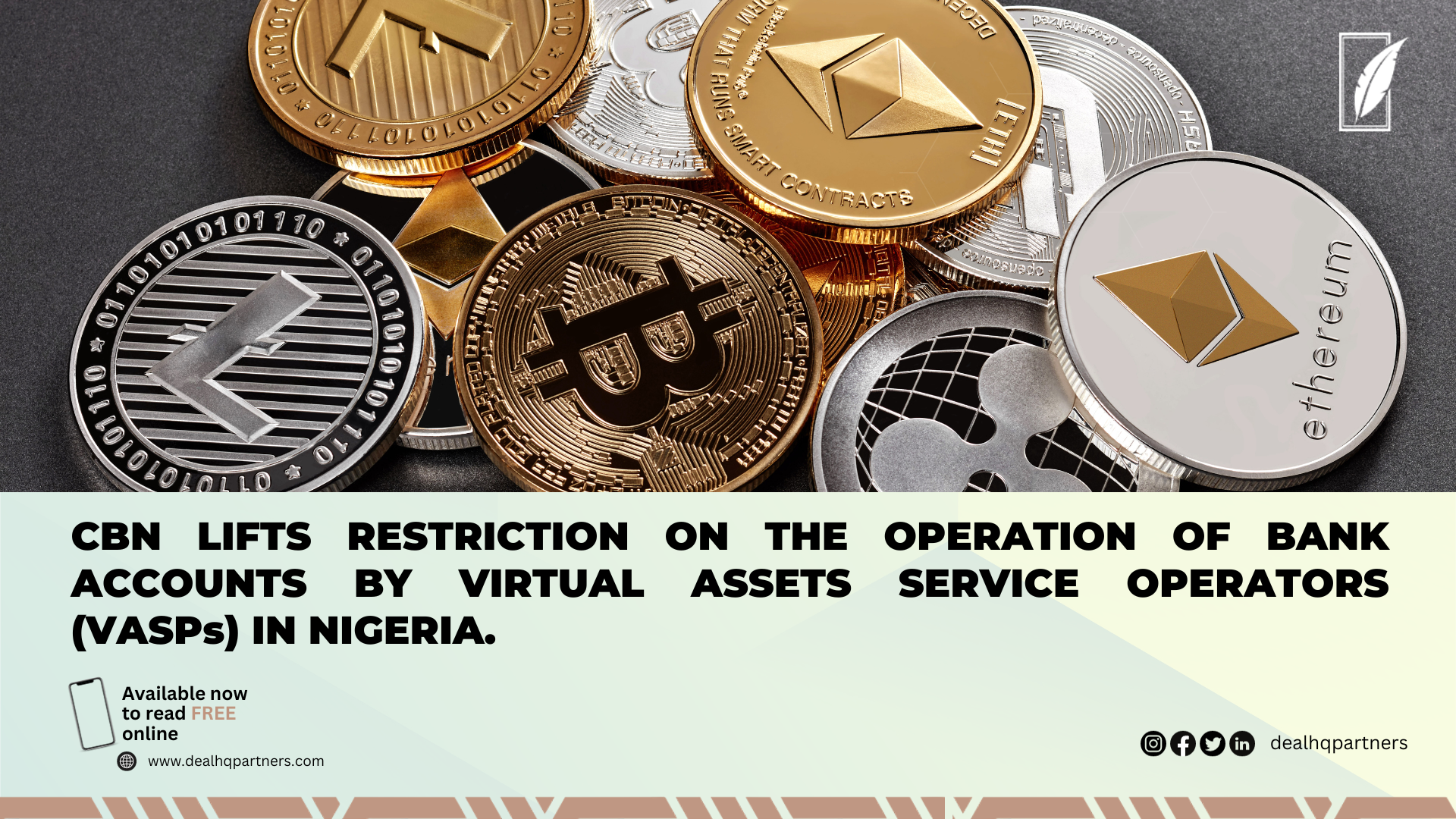
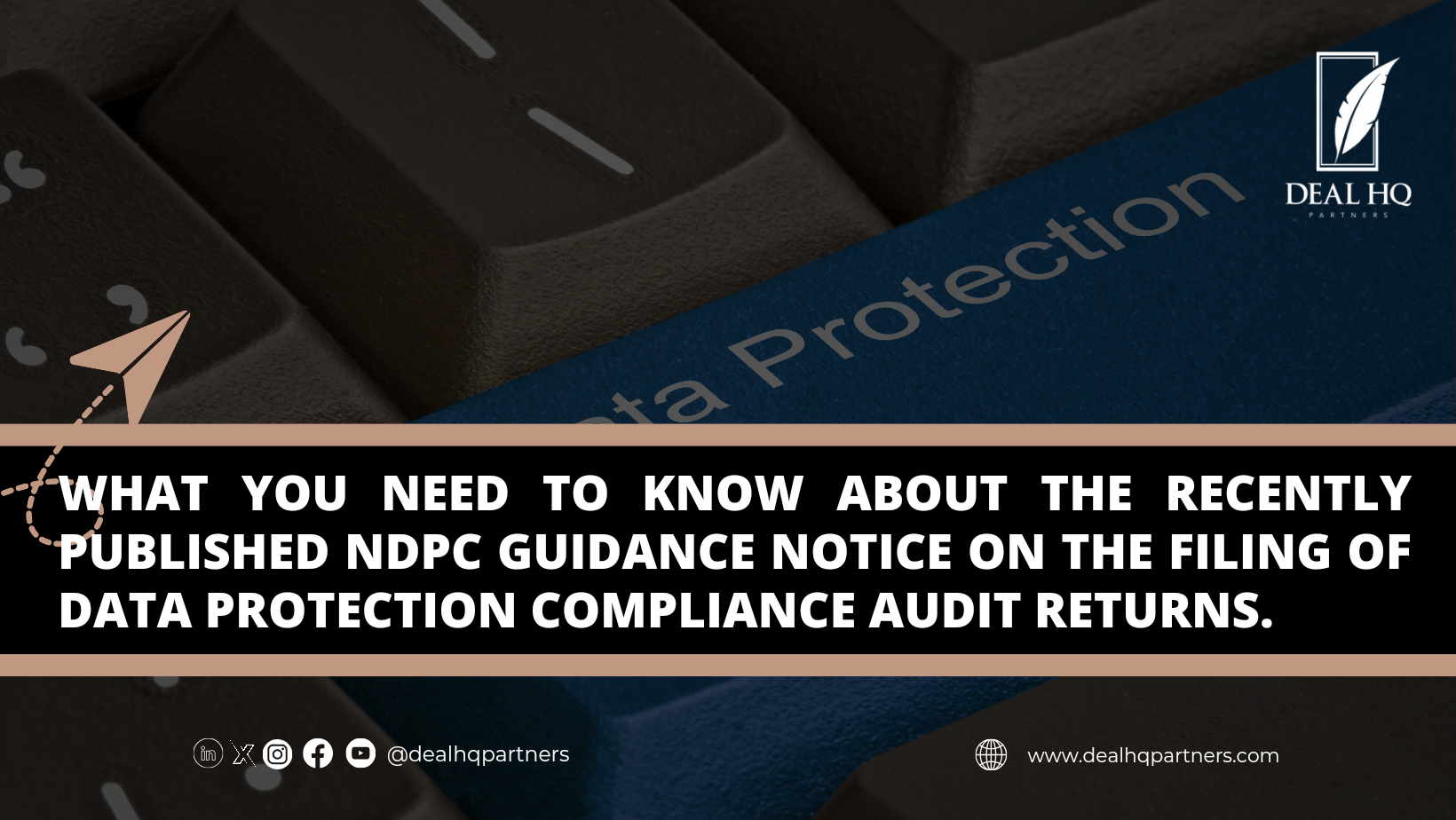
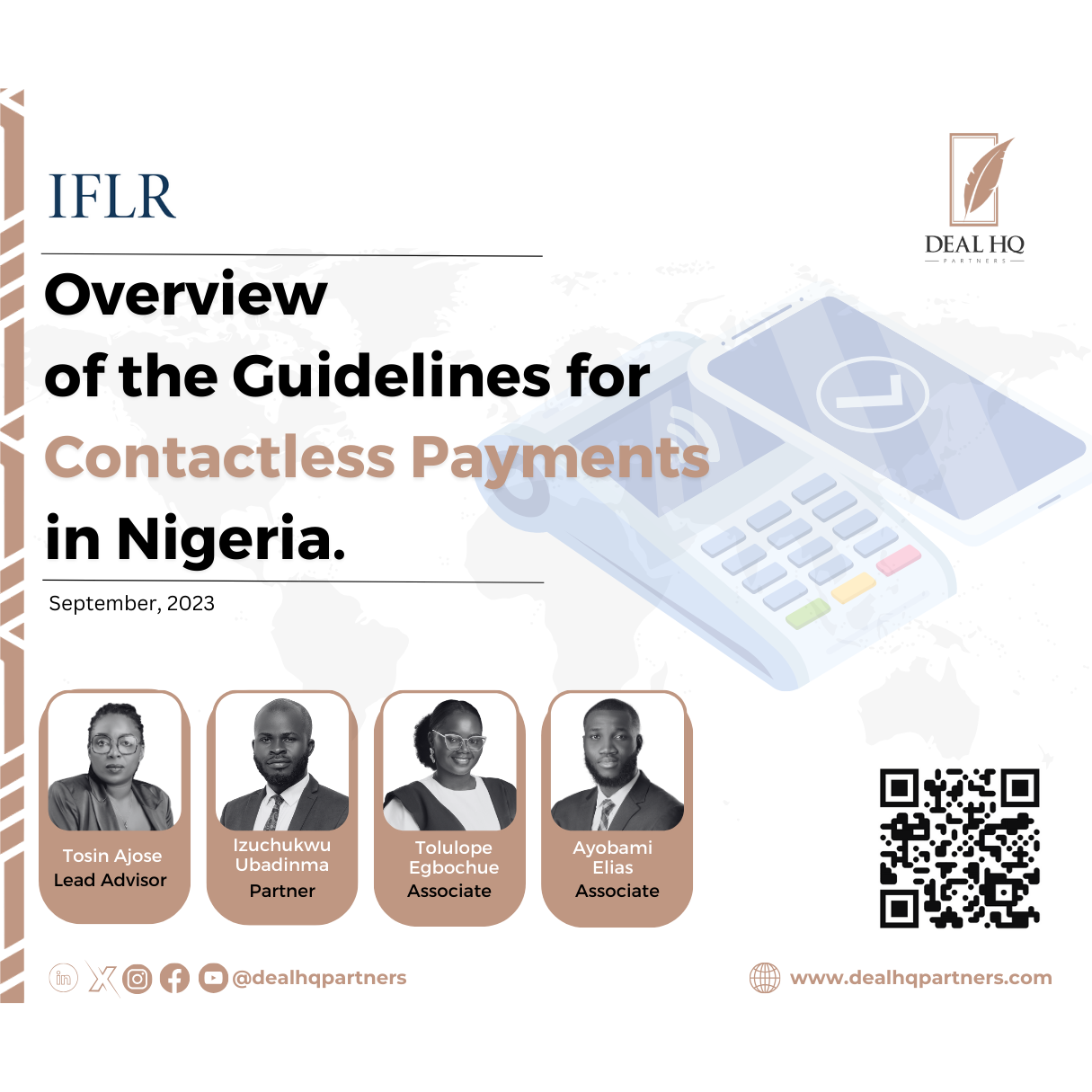

Recent Comments